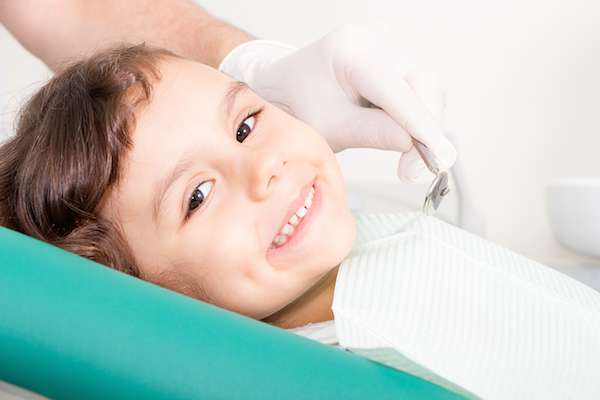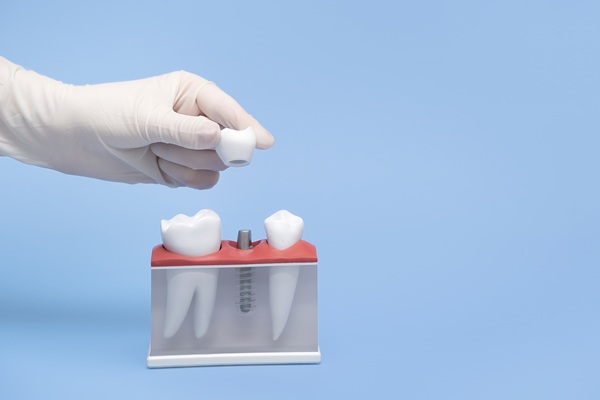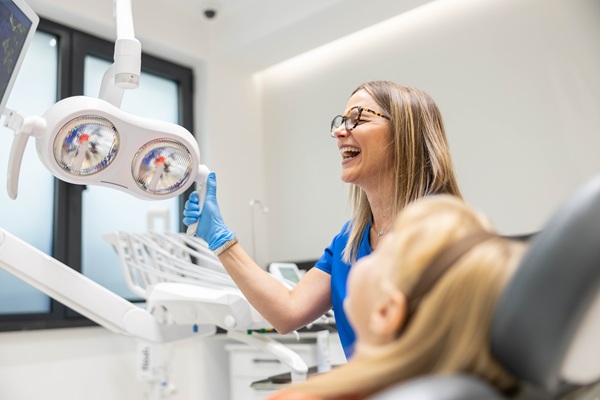 Whether an individual has simply not been to the family dentist in a few years or switched to a new provider, a first visit can be overwhelming and possibly nerve-wracking. Knowing what to expect during the first visit and how to prepare can help ease individuals’ concerns and ensure the appointment goes as smoothly as possible.
Whether an individual has simply not been to the family dentist in a few years or switched to a new provider, a first visit can be overwhelming and possibly nerve-wracking. Knowing what to expect during the first visit and how to prepare can help ease individuals’ concerns and ensure the appointment goes as smoothly as possible.
Preparing for a first visit to a family dentist
Maintaining twice-yearly appointments to a general dentist is essential to maintaining one’s overall oral health. However, there are certain steps individuals can take to gain the most benefit from a first visit. Below are the top three:
- Understand insurance options. Individuals who choose to invest in dental insurance should check with the insurers to find in-network dentists. It would also be beneficial for an individual to review the policy before scheduling an appointment to gain an idea of the type of procedures the policy covers and how much the insurer agrees to pay for covered services.
- Transfer dental records. Individuals who have been to the dentist in the past can make the most of an upcoming appointment by having previous dental records sent to the new provider. These records contain valuable information that a dentist can use to identify potential issues, anticipate new ones, and provide tailored care.
- Write down any concerns. Most people who make a first dental visit in several years do so because of certain concerns that have cropped up. Example concerns include teeth grinding, tooth sensitivity, gum swelling and tenderness, and tooth loss. A person should write down these concerns and take the notes along to the first dental appointment.
Taking the above steps is simple yet can go a long way toward ensuring a successful first visit.
What to expect at a first appointment
Fear of the unknown is one of the most common reasons individuals put off visits to the family dentist. For individuals to whom this rings true, it may help to have a play-by-play of what to expect during that initial visit.
X-rays
Unless another dentist sent a patient’s record over to the new dentist, a first visit is likely to involve X-rays. Bitewing X-rays are the most common type of X-ray used in dentistry to detect cavities, infection, bone loss, and gum disease. A dentist may use panoramic X-rays to find additional issues such as impacted teeth, tumors, bone abnormalities, and other issues.
Exam
While X-rays are a great tool for revealing existing and potential issues, the dentist will want to perform a physical examination to confirm what the X-rays reveal, as well as to identify other issues the X-rays may have missed. During the exam, the dentist will also discuss with the patient any concerns they may have, such as sensitivity, toothaches, or cosmetic concerns. From there, the dentist will put together a treatment plan.
Cleaning
Most dental visits end with a dental cleaning. Professional cleanings are essential for obtaining and maintaining optimal oral health, as professional cleanings are able to remove plaque and tartar buildup that at-home cleanings cannot.
Conclusion
A family dentist plays an integral role in a person’s overall health. Schedule your first appointment today.
Request an appointment or call Smiles Dental Care at 650-563-1180 for an appointment in our Mountain View office.
Recent Posts
Visiting a family dentist biannually (every six months) can help maintain optimal oral health. A family dentist provides consistent, comprehensive professional care that can prevent serious dental issues before they develop. This routine schedule offers a practical approach to long-term oral hygiene and wellness.Seeing a family dentist every six months is important because these visits…
One of the many things that a family dentist does is detect and treat tooth decay. According to the Centers for Disease Control and Prevention, more than 90% of adults in the United States have had a cavity at some point in time. Even though this issue is quite common, it does not mean that…
Routine dental checkups are just as important as brushing and flossing when it comes to oral health. Visiting a family dentist is a smart and convenient option that can provide a number of important advantages for the whole family and help to ensure you all maintain healthy teeth and gums.Some people may assume that there…


